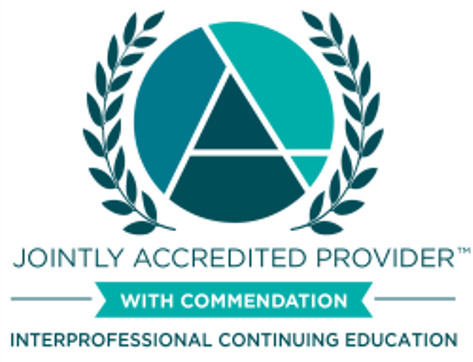Current Concepts in Extracorporeal Life Support: Medical Management and High-Fidelity Cannulation Simulations - 2024 - (December 5-6) Live (in-person)

Course Co-Directors: Gregory J. Schears, M.D., Pramod K. Guru, M.B.B.S., Sanjay Chaudhary, M.B.B.S. and Troy G. Seelhammer, M.D.
December 5 - 6, 2024 - Mayo Clinic - Jacksonville, Florida
Extracorporeal life support (ECLS) is increasingly being used for refractory cardiopulmonary failure and its use in the adult population is gaining attention in clinical practice. The paucity of randomized clinical trials and guidelines has led to significant practice variation when trying to address the challenge of minimizing risk and maximizing benefit. This course provides the necessary framework for management of a patient requiring ECLS through the use of practical case-based scenarios, high-fidelity hands-on simulations, and discussion of current hot topics.
Target Audience
ECMO specialists, respiratory therapists, nurses, perfusionists and physicians specializing in critical care medicine, pulmonary medicine, emergency medicine, cardiothoracic surgery, and cardiology. Also, those interested in a foundational education in caring for the ECMO patient may benefit from this course.
Learning Objectives
Upon completion of this activity, participants should be able to:
- Identify the various forms of ECMO support while explaining their individual roles in clinical practice.
- Describe anticoagulation, transfusion, and fluid management during ECMO
- Summarize strategies for pharmacotherapy during ECMO
- Discuss hemodynamic assessment of ECMO patients including application of POCUS and TEE in management
- Discuss principles of ethics to delivery of ECMO care
- Evaluate patient selection criteria for initiating various forms of ECMO (VV, VA, ECPR)
- Analyze the integration of ECMO with other mechanical circulatory support devices
- Develop a comprehensive approach to patient management, considering factors such as indications, contraindications, and potential synergies between modalities
- Assess the optimal cannulation strategy for each scenario to enhance patient outcomes
Attendance at any Mayo Clinic course does not indicate or guarantee competence or proficiency in the skills, knowledge or performance of any care or procedure(s) which may be discussed or taught in this course.
Thursday, December 5th, 2024 | |
7:00 a.m. | Registration, Continental Breakfast & Exhibit Hall |
7:20 | Welcome & Course Highlights |
7:30 | ECMO History and Overview |
ECMO Introduction | |
8:00 | ECMO Nuts & Bolts: Basics of Cannulas, Oxygenators, Pumps, & Configurations |
8:30 | Essentials of Anticoagulation during ECMO |
9:05 | Avoiding the “Bloody Mess”: Transfusion and ECMO |
9:35-9:45 a.m. | Break & Exhibits |
9:45 | To Breathe or Not to Breathe? - Mechanical Ventilation on ECMO (Virtual) |
10:15 | ECPR Rational/Trials |
10:45 | Cannulation Reassessment and Reconfiguration |
11:15 | ECMO program Design and Development |
11:45-12:30 p.m. | Lunch Break & Exhibits: |
Afternoon Simulations/Small Groups | |
Rotation #1 |
|
4:05 – 4:30 p.m. | Q&A & Debrief |
5:00 p.m. | Fellow Abstract Presentations and Welcome Reception at the Kinne Auditorium |
Friday, December 6th, 2024 | |
ECMO Intermediate | |
7:00 a.m. | Continental Breakfast & Exhibit Hall |
7:30 | Heart Failure: Physiology and Management |
8:00 | Application of Pharmacotherapy on ECMO |
8:30 | Levers to Pull: Vasoactive Pharmacotherapy Optimization in ECMO |
9:00 | ECMO beyond the conventional indications – toxicology, upper airway procedures, thoracic procedures |
9:30-9:45 a.m. | Break & Exhibits |
9:45 | What About the Liver and Kidneys? – CRRT and MARS on ECMO |
10:15 | RV dysfunction and ECMO |
10:45 | ECMO and Heart/ lung transplant |
11:15 | Play Nice – Mixed Mechanical Circulatory Support Devices & ECMO, ECPELLA |
11:50 | Didactic Q&A |
12:00-12:30 p.m. | Lunch & Exhibits |
Afternoon Simulations/Small Groups | |
Rotation #1
Rotation #3 |
|
3:55 – 4:30 p.m. | Q&A & Debrief |
4:30 p.m. | Adjourn |
All travel and lodging expenses are the sole responsibility of the individual registrant.
 Accreditation Statement
Accreditation Statement
In support of improving patient care, Mayo Clinic College of Medicine and Science is jointly accredited by the Accreditation Council for Continuing Medical Education (ACCME), the Accreditation Council for Pharmacy Education (ACPE), and the American Nurses Credentialing Center (ANCC) to provide continuing education for the healthcare team.
Credit Statement(s):
AMA
Mayo Clinic College of Medicine and Science designates this live activity for a maximum of 15.75 AMA PRA Category 1 Credits™. Physicians should claim only the credit commensurate with the extent of their participation in the activity.
AAPA
Mayo Clinic College of Medicine and Science has been authorized by the American Academy of PAs (AAPA) to award AAPA Category 1 CME credit for activities planned in accordance with AAPA CME Criteria. This activity is designated for 15.75 AAPA Category 1 CME credits. PAs should only claim credit commensurate with the extent of their participation.
ANCC
Mayo Clinic College of Medicine and Science designates this activity for a maximum of 15.75 ANCC contact hours. Nurses should claim only the credit commensurate with the extent of their participation in the activity.
AOA
The American Osteopathic Association designates this program for a maximum of 15.75 AOA Category 2-A credits.
American Board of Anesthesiology (ABA)
This activity offers up to 15.75 CME credits, of which 15.75 credits contribute the patient safety CME component of the American Board of Anesthesiology’s redesigned Maintenance of Certification in Anesthesiology™ (MOCA®) program, known as MOCA 2.0®. Please consult the ABA website, www.theABA.org, for a list of all MOCA 2.0 requirements.
American Board of Internal Medicine (ABIM)
Successful completion of this CME activity, which includes participation in the evaluation component, enables the participant to earn up to 15.75 MOC points and patient safety MOC credit in the American Board of Internal Medicine’s (ABIM) Maintenance of Certification (MOC) program. It is the CME activity provider’s responsibility to submit participant completion information to ACCME for the purpose of granting ABIM MOC credit.
American Board of Surgery (ABS)
Successful completion of this CME activity, which includes participation in the evaluation component, enables the learner to earn credit toward the CME and Self-Assessment requirements of the American Board of Surgery’s Continuous Certification program. It is the CME activity provider's responsibility to submit learner completion information to ACCME for the purpose of granting ABS credit.
Royal College of Physicians and Surgeons of Canada
Through an agreement between the Accreditation Council for Continuing Medical Education and the Royal College of Physicians and Surgeons of Canada, medical practitioners participating in the Royal College MOC Program may record completion of accredited activities registered under the ACCME’s “CME in Support of MOC” program in Section 3 of the Royal College’s MOC Program.
Other Healthcare Professionals:
A record of attendance will be provided to all registrants for requesting credits in accordance with state nursing boards, specialty societies or other professional associations.
For disclosure information regarding Mayo Clinic School of Continuous Professional Development accreditation review committee member(s) and staff, please go here to review disclosures.
Available Credit
- 15.75 AAPA Category 1 Self-assessment
- 15.75 ABA - Lifelong Learning
- 15.75 ABIM - Medical Knowledge
- 15.75 ABS - Accredited CME
- 15.75 AMA PRA Category 1 Credit™
- 15.75 ANCC
- 15.75 AOA Category 2-A
- 15.75 Attendance
Price
Please update your profile to let us know if you have dietary restrictions or access requirements.
Commitment to Equity, Diversity and Inclusion
Mayo Clinic School of Continuous Professional Development (MCSCPD) strives to foster a learning environment in which individual differences are valued, allowing all to achieve their fullest potential.
Cancellation and Refund Policy
View Cancellation and Refund Policy
All requests must be submitted in writing using the Contact Us Form.
Any use of this site constitutes your agreement to the Terms and Conditions of Registration.

 Facebook
Facebook X
X LinkedIn
LinkedIn Forward
Forward